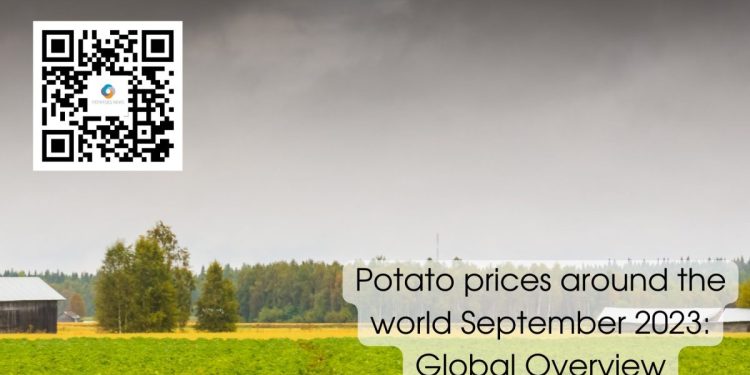In a recent report from Europatat, it has been revealed that potato seed planting across Europe is facing significant delays this year. Many European nations have experienced prolonged periods of cold weather and persistent rain, leading to a delay of four to five weeks or even longer in some regions. This delay is expected to have substantial consequences on the harvesting dates and overall yield for the year.
One of the major challenges highlighted in the report is the decrease in the potato seed area for 2023. According to a press release by Europatat, the North-western European Potato Growers (NEPG) have anticipated a reduction of approximately 5,000 hectares in seed area for the Netherlands and France combined. Moreover, NEPG has predicted similar decreases in seed area for Scotland, Belgium, and Germany. Overall, it is estimated that 7% less land in Europe is being used for cultivating potato seed compared to the previous year.
Europatat members are now anticipating a shortage of seed potatoes in 2023, especially in certain sizes (28 – 55 mm) and classes (E class, primarily required by importing countries) due to the delayed planting season. This limited supply will particularly impact overseas deliveries, urging Europatat to recommend an extension of the maximum size of traded seed potatoes from the current 55 mm to 60 mm for this year. This measure aims to enhance the availability of seed potatoes for export destinations.
The European seed potato industry has long been a vital source of high-quality planting material for growers both within Europe and around the world. European exporters have been instrumental in supplying seed potatoes globally, contributing significantly to food security and promoting a healthy diet.
However, the challenges faced during the 2023 growing season have been unprecedented for seed potato growers. Unpredictable and adverse weather conditions have disrupted the traditional planting and harvesting schedules of seed potatoes. The European Union’s Joint Research Center has been diligently monitoring these changing weather patterns and their impact on various crops, including potatoes.
As Europatat continues to work towards solutions to mitigate the impact of these challenges, it is essential for countries relying on EU seed potato imports to be aware of the situation. The global agricultural community must collaborate to ensure a stable supply chain and address the potential repercussions on the 2023-2024 export season. Only through international cooperation and adaptive strategies can the industry navigate these obstacles and maintain a consistent supply of this essential food staple to markets worldwide.






